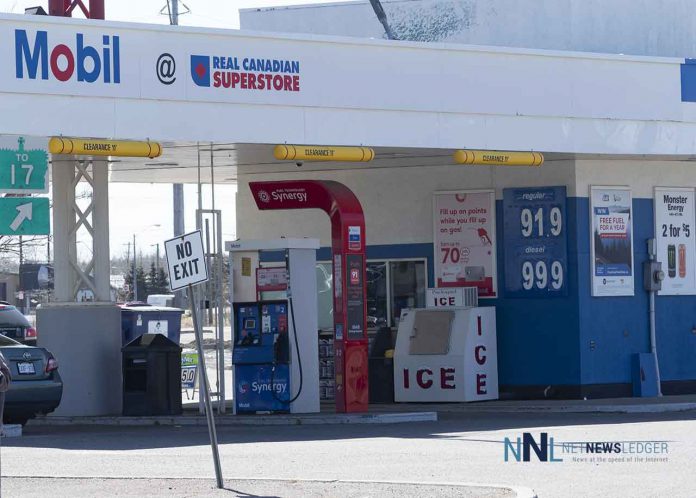The Carbon Tax Hike: An Overview
THUNDER BAY – NEWS – On April 1, Canadians awoke to a significant hike in the carbon tax, with a 23 percent increase marking a controversial move by Prime Minister Justin Trudeau’s government.
This step is part of a broader plan to quadruple the carbon tax over the next six years, potentially escalating costs across various sectors. Critics argue that this will make essentials like food and transportation more expensive for the average Canadian family, as the tax affects the entire supply chain from farmers to truckers.
Despite opposition from 70 percent of Canadians and numerous provincial premiers, the government proceeded with the increase. They argue it’s a necessary measure to combat climate change. However, concerns persist about its economic impact, particularly on lower-income families.
Who Bears the Burden?
Canada’s carbon pricing system includes a levy on fossil fuel purchases, affecting individuals, small and medium-sized businesses, and public sector operations. The recent increase impacts the consumer levy, now applied in every province and territory except British Columbia, Quebec, and Northwest Territories, each having their own systems.
The levy affects over 20 different fuel sources, with the price hike meaning increased costs for gasoline, diesel, propane, and natural gas. These changes are expected to ripple through the economy, influencing the cost of living by making fuel, heating, and indirectly, food and clothing more expensive.
Mitigating the Impact Through Rebates
To offset the economic burden on households, the government has introduced the Canada Carbon Rebate. This initiative returns a significant portion of the collected carbon tax to Canadians, with the rebate amount increasing as the carbon price rises. The rebates are distributed based on household size and are designed to alleviate the financial impact, especially on rural residents who face higher costs due to longer driving distances.
However, there are criticisms regarding the effectiveness and distribution of these rebates, especially for businesses that have yet to see significant benefits from the program. Furthermore, some provinces will not see an increase in rebate amounts this year, raising questions about the fairness and adequacy of the support provided.
Balancing Economic and Environmental Goals
The carbon tax increase is a contentious issue that highlights the challenge of balancing economic concerns with the urgent need for environmental action. While the government emphasizes the importance of the carbon tax in fighting climate change, many Canadians are worried about the immediate financial impact.
Province-Wise Cost Impact
The latest adjustment in the carbon tax will see a uniform increase in fuel prices across Canada, except in provinces with unique carbon pricing systems. Here’s how the cost implications break down by province:
- Gasoline Price Increase: All provinces will experience a rise in gasoline costs. The carbon price on a litre of gasoline will now be 17.6 cents, up by 3.3 cents. This means filling a 50-litre tank will cost about $1.65 more than before.
- Diesel, Propane, and Natural Gas: Diesel prices are set to increase by 4.01 cents per litre, costing an additional 21.39 cents in carbon price. Propane sees a rise to 12.38 cents per litre. For natural gas, the hike translates to an added cost of 15.3 cents per cubic metre, affecting households differently based on their natural gas consumption.
Thunder Bay and Ontario Specifics
- Ontario’s Fuel and Heating Costs: In Ontario, residents, including those in Thunder Bay, will face the nationwide increase in fuel and heating costs. This could significantly affect household budgets, particularly during the winter months when heating demands soar.
- Indirect Costs Across the Board: Regardless of province, the carbon tax will indirectly influence the prices of goods and services, including food and clothing, due to increased transportation and production costs.
Navigating Rebates
To alleviate the financial burden, the federal government offers carbon rebates, with the amounts varying by province and family size. Here’s a glance at the expected rebates in key provinces, highlighting the support available to offset the carbon tax impact:
- Alberta: Singles receive $225, couples $337.50, and a family of four $450.
- Saskatchewan: Singles get $188, couples $282, and families of four $376.
- Manitoba: Rebates are set at $150 for singles, $225 for couples, and $300 for a family of four.
- Ontario: Singles will see $140, couples $210, and families of four $280 in rebates.
- Thunder Bay Perspective: Residents can expect the Ontario-specific rebate amounts, providing some relief against the carbon tax’s direct and indirect costs.
Looking ahead, it’s clear that Canada’s approach to carbon pricing will continue to evolve. The debate over its implementation and impact reflects the broader global struggle to address climate change without placing undue burden on citizens.







